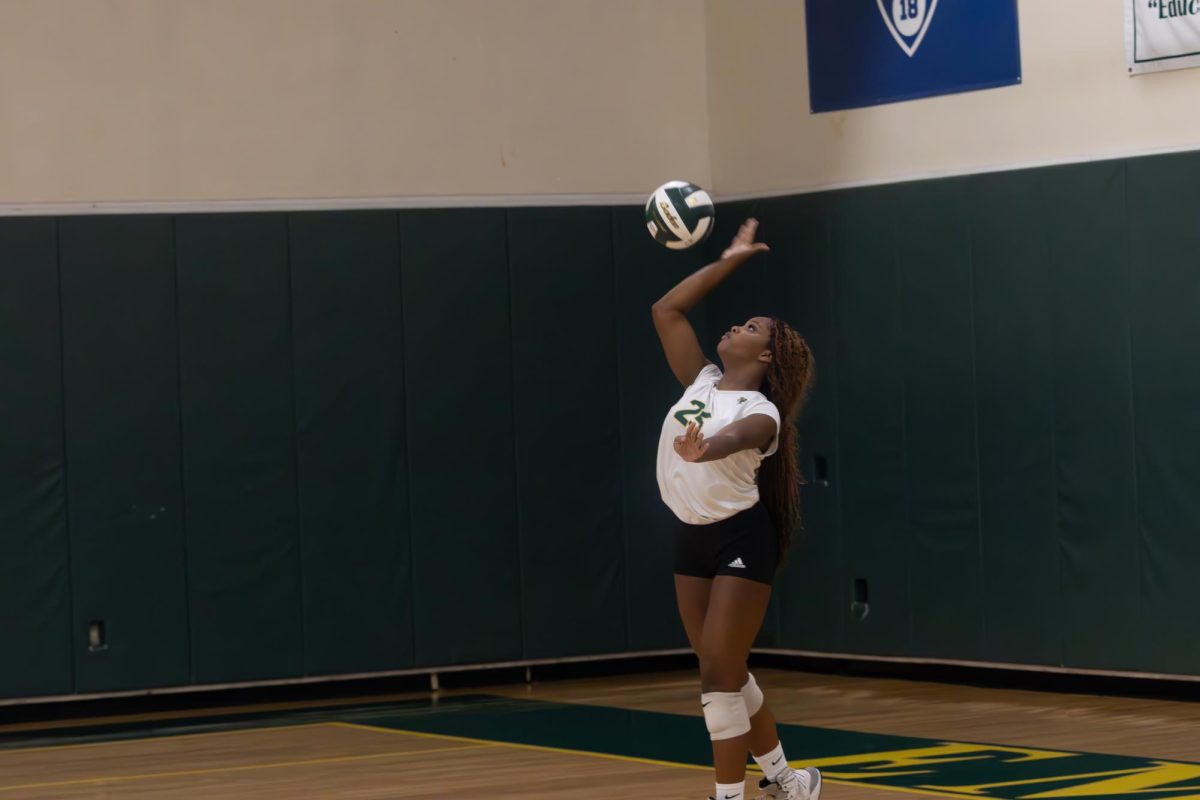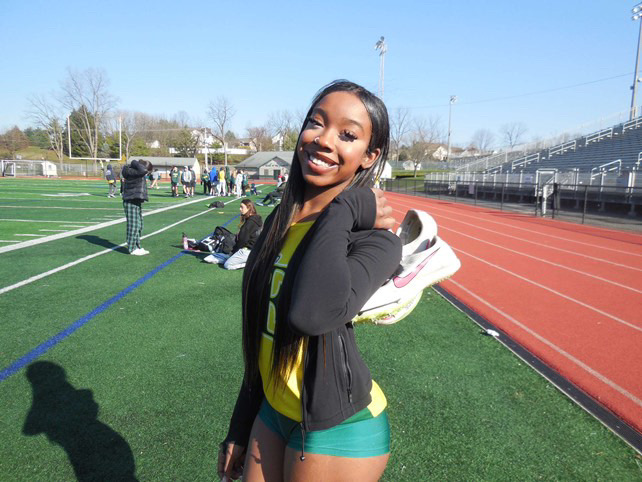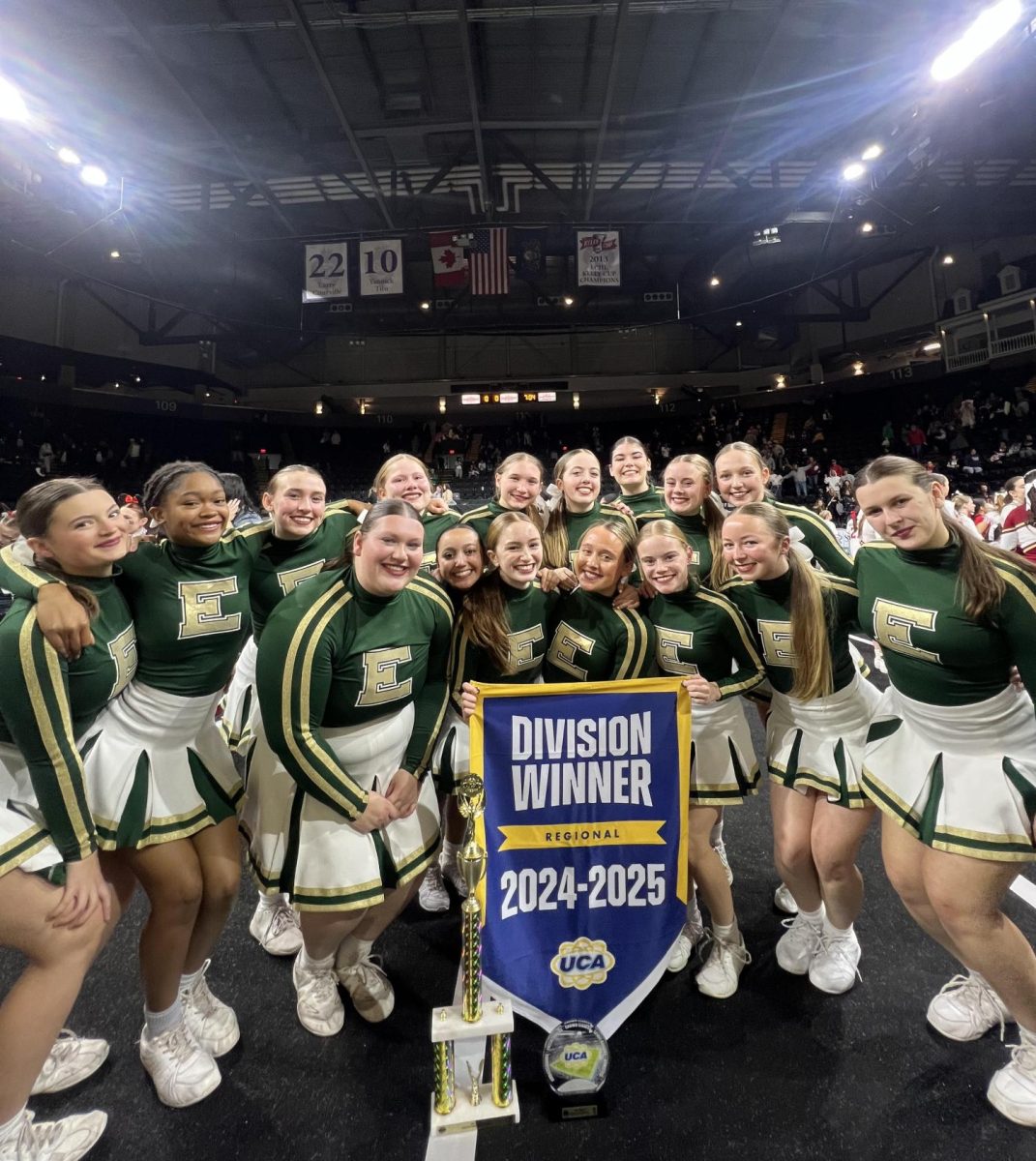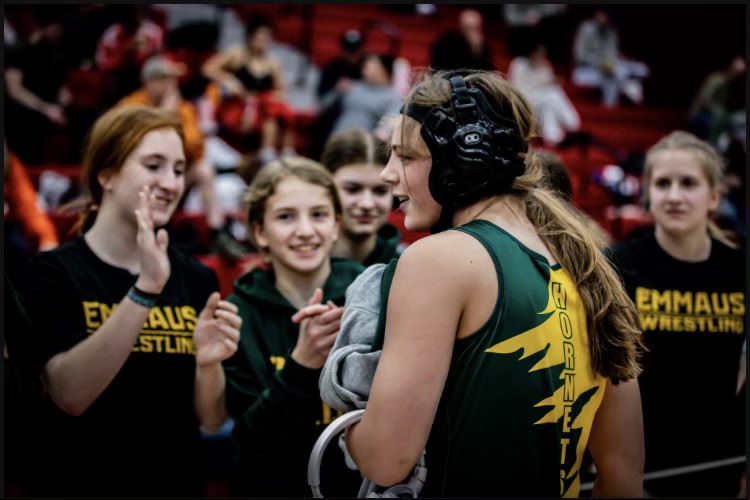How the EPC denied Emmaus girls’ track title in last-minute ruling, while football maintains co-champion status
With varsity letters in three sports, seven state championship competitions under her belt, and an All-American swimming title, 2019 Emmaus graduate Abby Heilenman dedicated hundreds of hours to training throughout high school.
So when the girls’ track and field team headed into the end of the spring season, Heilenman and her teammates knew they were poised to defend their East Penn Conference title. After rattling off five consecutive wins, leaving them tied with Easton, the Hornets expected to be named co-champions.
“Our impression was that if we beat Parkland [in the final meet of the season] that we would have been EPC champions,” Heilenman said. “We lost to Easton early in the year, and the fact the we were able to win all those games to catch up was just great.”
After all, that’s also how the championship title came this year for the Emmaus football team. In the fall, the Hornets ended their regular season with a 9-1 record, tying with Freedom High School. Last October, the football team’s only loss came in dramatic fashion at the hands of Freedom. They blew a 16-point lead with less than two minutes left in Emmaus’ homecoming game, to ultimately go down in a double overtime thriller. By season’s end, the EPC awarded both teams the title of co-champion.
This, however, did not happen with Emmaus girls’ track, even though their season unfolded in a similar pattern.
In a puzzling move directed by head EPC officials that left several coaches and athletic directors running to the rule books, the regulations were apparently changed at the last hour, denying the Emmaus girls’ track team a title they thought they had won.
The Stinger interviewed Bob Hartman, the track and field chairman for the EPC, and Emmaus athletic director Rebecca George. After talking with both officials, the newspaper filed a Freedom of Information Act request to review email exchanges between the two regarding the decision as to why the Emmaus girls’ team did not receive the title. A review of the email exchange shows the following account:
At 7:47 a.m. on April 30, a seemingly confused George initiated the conversation, seeking clarification as to whether or not the track team had won a co-championship.
“Couple questions about track and field… I am being told we are co-champions or co-divisional champions. Can you clarify please?” George inquired in her email to Hartman.
Hartman’s response was seemingly cut and dry, implying that Emmaus had won: “This year [track and field] is two divisions. Based on football,” Hartman replied to George.
In fact, co-championships are not an uncommon occurrence to the EPC or even to track and field. In 2018, Emmaus girls’ track and field shared the title with Stroudsburg; however, both teams were undefeated. According to Hartman, new rules were placed in order to prevent these ties from happening. However with this being the case of football, the new rules would not take effect for track until the following season, 2019-20.
At 11:55 a.m., Hartman seemed to confirm this in his response to George.
“Co-champs this year… Next year head to head,” Hartman confirmed to George, according to the emails obtained through the FOIA.
At 12:03 p.m. Hartman once again emailed George, this time singing a different tune. His subject line read “Hold on… don’t release that,” creating the first signs of uncertainty surrounding the rule.
“Debating with Exec. council…,” Hartman wrote.
Still unsure of how to proceed, George informed Hartman that it was universally understood that the girls’ track teams from Emmaus and Easton were co-champions.
“The media outlets have announced co-champs… I see it all over the place,” George wrote. “Kami [Reinhard] my coach was told that last night by several folks as I guess this has been the case in the past.”
After a slight delay in responses, Hartman answered George at 1:38 p.m., confirming that Easton’s track team would be the only one bringing home a trophy.
“Using head to head as tiebreaker, so easton [sic] wins… sorry for confusion,” Hartman wrote.
Realizing the situation at hand, Reinhard emailed George and conveyed her frustration toward the final outcome, making it clear to George that everyone she was in contact with was sure of the opposite.
“We didn’t know that was in the bylaws or rules,” Reinhard wrote. “It wasn’t known or communicated, and I don’t see it anywhere? Parkland’s coach has been there over 30 years. He said he has not heard anything about head to head, and said we should be co-champs… It was collectively understood that way.”
In an email interview with The Stinger this week, Hartman explained that by term “debating,” he meant that they were simply making sure they had the correct ruling.
“The term ‘debating’ could have been replaced with discussing, clarifying, any of a number of words,” Hartman said. “League vice-president Fred Harris gave us the correct ruling and we agreed. There was no confusion, but since we had recently went over this, we wanted to be sure we were correct.”
When taking a look into the EPC rule book, one will find the rules are written in conflict with Hartman’s emails and the rest of the executive council’s final ruling in Emmaus’ case. Article VIII section 3 of the EPC rule book states that “the member PIAA high school having satisfied the requirement of the Conference for varsity championship status at the end of the completed season shall be awarded a standard trophy. In the case of a tie, duplicate trophies shall be awarded.” Divisional alignments do not help either, as football and track are the only two sports that are listed as ‘two division’ sports. There are no rules that can be found on the EPC website that can give any credence to this ruling, that of making a different ruling from football to track.
Hartman stands by his interpretation of the rule, believing that it was not the track tie that the executive council mismanaged, but instead was the football tie that was incorrectly dealt with from the start.
“Prior to track and field season we had discussions in league meetings regarding breaking ties in two or three division sport, or where you could because of head to head,” Hartman said. “In our discussions in league meetings, we too realized the football championship was awarded to two teams, even though the tie was broken. Simply stated, we were not going to take a [football] trophy back from a team four months after it was awarded.”
Harold Fairclough, head football coach of the Emmaus Hornets, was interviewed by The Stinger on June 14. Although unaware of the situation surrounding the girls’ track team, Fairclough felt surprised by the decision.
As a coach whose team shared a co-championship, Fairclough made it clear that had he been put into a similar situation this past fall, he would not have let the championship go.
“I would have probably spoken to the chairman and figured out the reasoning behind that ruling,” Fairclough said. “Yeah, I would have definitely followed up because our kids work hard to get to that point. It’s not just about a championship match or a championship game. It’s not just about that one day, it’s about the process to get there.
“On behalf of my kids, I probably would have found out what happened,” Fairclough said, “and why that ruling was made because of all the effort that goes into a season, not just that day or that event.”
Heilenman, along with the rest of her track teammates, were informed of the EPC’s decision in a meeting with coach Reinhard. Reinhard explained the ruling to the team, leaving many including Heilenman confused. This confusion soon turned into disbelief, as Heilenman learned more about how the ruling was made.
“I’m not exactly sure what happened. The next day we had a team meeting and [coach Reinhard] told us that we would not be receiving the championship,” Heilenman said, before knowing about the emails.
After learning about the email correspondence, Heilenman was surprised.
“If it was changed at some meeting, then that is unfair,” she said. “I would understand if that was a rule that was written and you could check, but it’s definitely unfair for them to just change something like that in a meeting. It’s especially unfair because we hadn’t played our best against Easton, and after they lost to Parkland, we all thought there was a chance to win. Yeah, we lost to Easton, but we beat a team that they couldn’t, so I don’t see how you could give a trophy to one over another. We should have been co-champions then.”
Reinhard feels similarly disappointed, placing responsibility on the lack of transparency between the EPC officials and everyone down the chain of command.
“Easton is an incredibly strong team, and I’m not disappointed that we lost to them at all,” Reinhard said in an interview. “[It’s] just more of the fact that I was under the impression that we would also be taking home a trophy. I mean, before the meet, I was talking to some of the coaches at Parkland because we keep in contact. We both thought the situation could end in co-champs. Even after the event, someone congratulated me on being co-champs, so the situation as a whole was extremely disappointing.”
Despite the outcome, Reinhard feels more confident moving forward. Since the rules have been finalized, she senses no need to worry about this issue arising again.
“The next morning we talked, and it kept flipping back and forward,” Reinhard said. “First co-champions, then no, then yes, then no, and this happened a couple of times until a final decision was made. This was no one’s fault really, they just didn’t do a good job of verbalizing the rules. Now we know and since the rule is going to stay, I feel much better about it moving forward.”
Track and field is a sport that can easily be overlooked in favor of more popular sports such as football and boys basketball. The ruling made by the EPC demonstrated that the more popular sport was given priority, leaving the other sports in a scramble as to what the basic rules were. Playing three more commonly overlooked sports, Heilenman believes that these teams aren’t given the attention that they deserve.
“Being a swimmer and runner, you can tell certain sports are ‘underrated,’” Heilenman said. “Even if we do good, no one ever realizes how good we are. No one really pays us any mind and it’s unfair because we could be performing better than the more popular sports, and no one will care.
“It’s just unfair how certain sports get more priority,” Heilenman said, “and track is not one of those that is focused on. It’s upsetting.”









a • May 18, 2020 at 2:14 pm
Helpful info. Lucky me I discovered your web site accidentally, and
I’m shocked why this twist of fate did not took place in advance!
I bookmarked it.